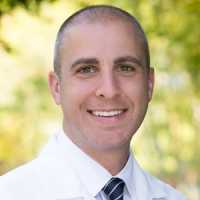07 Feb Many Cancer Survivor Face Heart Elevated Disease Risk
MedicalResearch.com Interview with:
Saro H. Armenian, DO, MPH
Associate Professor
Departments of Pediatrics and Population Sciences
City of Hope Comprehensive Cancer Center
Director of the Childhood Cancer Survivorship Clinic
Duarte, CA
Medical Research: What is the background for this study? What are the main findings?
Dr. Armenian: There are an estimated 14 million cancer survivors living in the U.S. today, and this number is expected to reach 19 million by 2024. Among these cancer survivors, nearly two-thirds will have survived more than five years beyond their cancer diagnosis, and two out of every five will be considered a ten-year survivor, contributing to a growing population of aging cancer survivors. Until now, very little was known about the cardiovascular health of adult long-term cancer survivors.
For the current study, we relied on diagnosis/procedures routinely recorded in a large integrative healthcare system that includes racially/ethnically and socioeconomically diverse members who are broadly representative of the residents in Southern California. Cardiovascular outcomes were captured from a wide variety of healthcare delivery settings (inpatient and outpatient, primary and sub-specialty care). Importantly, cancer survivors included in the current study continued to receive their primary and subspecialty care within this system well-beyond their initial cancer diagnosis (5- and 10-year retention rate: 81% and 70%, respectively), providing us with reliable population-based estimates of long-term cardiovascular disease (CVD) risk.
We found an up to 70% higher risk of CVD (ischemic heart disease, stroke, or cardiomyopathy/ heart failure) in patients diagnosed with breast, kidney, lung/bronchus, multiple myeloma, non-Hodgkin lymphoma, and ovarian cancer when compared with an age- sex- and zip-code matched non-cancer controls.
Cancer survivors who had multiple modifiable risk factors such as hypertension, diabetes, dyslipidemia were at highest risk of developing cardiovascular disease later in life, irrespective of cancer diagnosis. Importantly, cancer survivors who developed CVD were significantly more likely to die from all causes when compared to cancer survivors who did not develop CVD. While the reasons for these findings are not clear, it is possible that the presence of CVD can markedly diminish treatment options or planned duration of therapy at the time of cancer recurrence, thus compromising the optimal long-term management of a cancer patient.
Medical Research: What should clinicians and patients take away from your report?
Dr. Armenian: The findings from the current study speak to the growing long-term morbidity associated with cardiovascular disease in cancer survivors, and to the critical importance of strategies to improve cardiovascular health in at risk survivors long after completion of cancer therapy. The preliminary findings from the study set the stage for developing predictive models for identifying high-risk individuals for targeted surveillance, as well as aggressive management of cardiovascular risk factors.
Medical Research: What recommendations do you have for future research as a result of this study?
Dr. Armenian: Cardiovascular disease in cancer survivors is likely to be multifactorial, involving therapeutic exposures that may compromise the cardiovascular system, as well as comorbidities and lifestyle factors that may increase long-term CVD risk. This is reflected by the varying magnitudes of risk by cancer type as well as by CVD subtype observed in our study. With regard to therapeutic exposures, anticancer agents such as anthracycline chemotherapy, radiation to the heart and related blood vessels, and targeted therapies such as anti–human epidermal growth factor receptor-2 therapy (ie, trastuzumab) are established risk factors for cardiovascular disease in breast cancer and lymphoma survivors. However, there is a paucity of this information for survivors of ovarian cancer, multiple myeloma, carcinoma of the lung/bronchus, and kidney cancer – populations shown to be at increased risk for cardiovascular disease in the current study. Additional studies are needed to systematically interrogate the treatment-related as well as other modifiers of CVD risk in these populations, and to explore the interactions between cancer-directed therapies and health-related comorbidities.
Citation:
JCO JCO640409; published online on February 1, 2016;
[wysija_form id=”5″]
Saro H. Armenian, DO, MPH (2016). Many Cancer Survivor Face Heart Elevated Disease Risk
Last Updated on February 7, 2016 by Marie Benz MD FAAD

